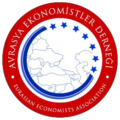
Международный конгресс "Экономика стран Евразии"
19-20 Сентябрь 2023 – Измир - ТУРЦИЯ
Paper properties
Paper ID : 2812
Status : Paper submitted to journal
Language :
Topic :
Presenter: Ph.D. candidate Kristijan Kozheski
Session : 2C Growth
Labor Productivity, Wages, and Inflation: The Evidence from Selected Central and South-East European Countries
Labor Productivity, Wages, and Inflation: The Evidence from Selected Central and South-East European Countries
- Prof. Dr. Trajko Slaveski (Ss. Cyril and Methodius University, Macedonia)
- Ph.D. candidate Kristijan Kozheski (Ss. Cyril and Methodius University in Skopje, Macedonia)
Abstract
The relationship between inflation, worker wages, and labor productivity growth has been a widely discussed topic among academics in recent decades. Labor productivity is a critical component for maintaining and improving the competitiveness of national economies and establishing sustainable economic growth. The increase in labor productivity serves as the foundation for increasing workers' wages, thereby enhancing their purchasing power and overall well-being. However, empirical data from Southeast European countries indicate that labor productivity growth rates have been insufficient to enable catch-up with their Western European counterparts. Additionally, these countries have experienced significant inflation rates in recent years, resulting in a notable decline in real wages for workers. Therefore, the gap between labor productivity and workers' wages has not only failed to diminish but has, in fact, widened over the past few decades. The primary objective of this paper is to examine the interrelationships among labor productivity, workers' wages, and inflation in Central and Southeast European countries, specifically the Balkan EU countries, Balkan non-EU countries, and the Visegrad group of countries. The findings reveal a short-term causality among inflation, labor productivity, and the statutory minimum wage in these three groups of countries. Furthermore, there is evidence of a bidirectional causal relationship running from the minimum wage and inflation to labor productivity, and vice versa, in the short term. Additionally, the introduction of a minimum wage shock significantly influences the future values of labor productivity and inflation. The adverse effects of an externally induced increase in the statutory minimum wage are particularly noticeable in Western Balkan non-EU countries.
JEL codes: J24, J30, J31




